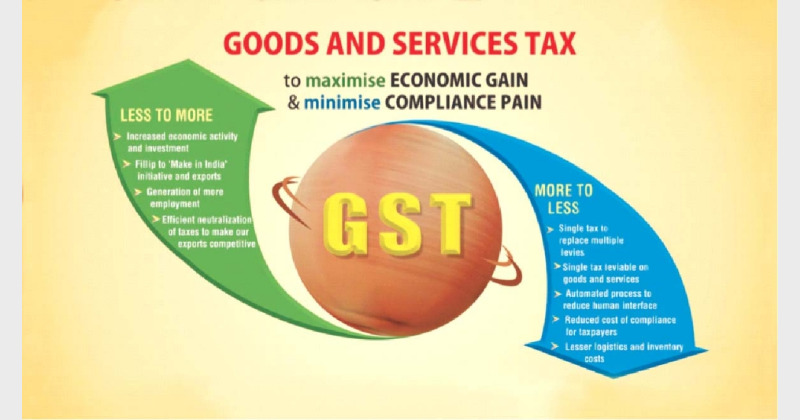

Congress can’t take credit for giving a passage to GST legislation in the Rajya Sabha and then ridicule it as Gabbar Singh Tax for petty political gains
Shshank Saurav
Demonetisation coupled with introduction of Goods and Service Tax (GST) has been blamed for the slowdown of economic growth. However the objectives of demonetisation were altogether different which has already been discussed at various forums. GST is the biggest ever tax reform of our country and its after effects are visible now. It’s been a little more than three months since GST was implemented and it’s a too short period for evaluation of such a massive reform but we can analyse the key indicators to understand the impact and see the direction.
Consumption
Demand and supply are the two factors which impact the ball rolling in any economy. Consumption derives the demand and if we go by the market data then it clearly indicates that there is no negative impact of GST implementation and all the key sectors have noted growth. For example automobile sector has noted increase in car sales, ecommerce sector has seen increase in volume of trade and similar trends can be seen in sectors like FMCG,
electronics etc. Apart from domestic consumption, exports are also rising and it grew at 25.7 per cent in September (Year over Year basis).
Production
Production saw a hit initially but now it has moved southward and an increasing trend can be seen in all the parameters (refer table 1). It can be said that initial shockwaves in production data was primarily on account of two factors-
i. Traders tried to minimise their stock on the transition date (i.e. 30th June) and as a result the decrease in demand left the
manufacturers with large quantity of stock. Accordingly production after GST implementation was down because the manufacturers cleared their existing stock.
ii. Initial disruption caused by the tax reform which compelled the organisations to realign their supply-chain.
Inflation
Inflation is something which impacts the common man most and it has always been a cause of concern for
ruling parties. Historical records say that every country witnessed increase in inflation after introduction of GST and same trend is visible in India also. However there is one aspect which needs to be mentioned that food
inflation got slowed while prices rose at a faster pace for housing, fuel and
clothing. In other words items which impact the common man are largely unaffected by the GST implementation. Traditionally India has a high inflation economy and despite initial impacts of GST, current level of inflation is still below the psychological benchmark of 5 per cent.
Tax Buoyancy
Data for some more period would be required to assess the impact over tax collection trend (net of refund and inputs) but it has taken off very well. Tax collection in each month surpassed Rs. 90 thousand crore and the more tax base is increased, the more collection is expected. With an increase in tax
revenue, we can expect that rate
rationalisation exercise will be carried out by the Government to reduce the tariff on some items.
Tax Compliance
Widening of tax base was one of the stated objective of GST and it was to be ensured with the help of integrated IT platform for all the taxpayers. Various functionalities like credit match, e-way bill etc. are designed to check the tax evasion and we can see gradual increase in number of return filers (refer table 3). Once the
loopholes are plugged then things would automatically start falling in place and it can be seen in the form of increased tax payers.
GST law is still evolving and the government is taking adequate steps to address the concerns raised by the industry. Three months period is too short to pass a judgement on such a massive tax reform. So far as
comments coming from opposition are concerned, it may be highlighted that all the decisions relating to GST, be it constitutional amendment or drafting of law/rules were taken unanimously and Congress was part of all these deliberations. If they had any
apprehension then floor of the Parliament was the appropriate place to raise their objection.
(The writer is Chartered Accountant and Anti Money-Laundering Specialist)
Leave a Comment